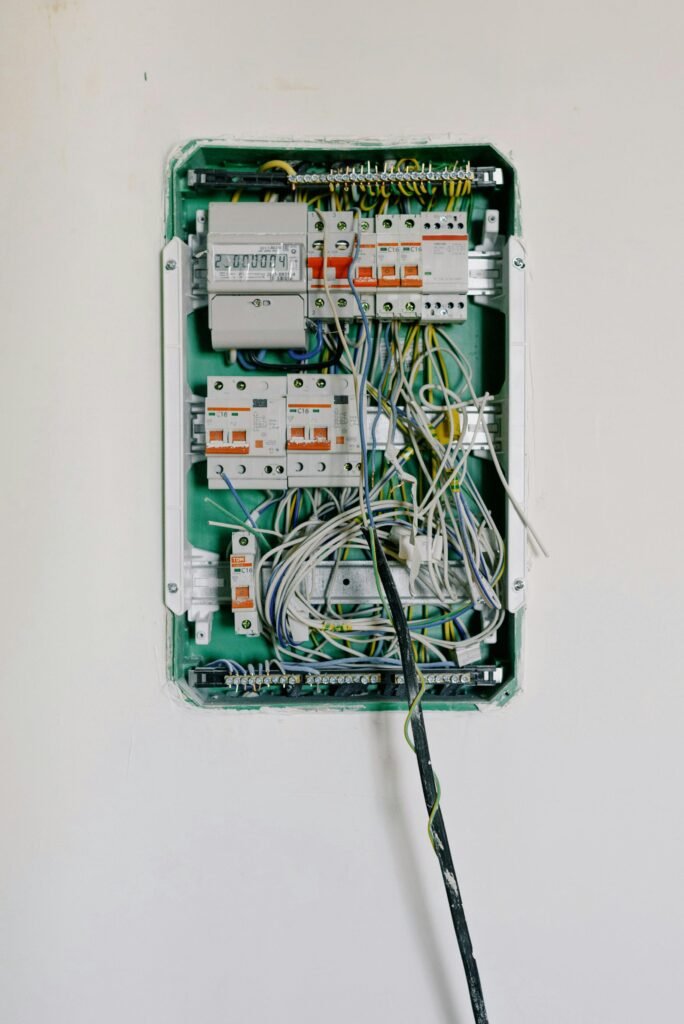Electrical work in construction is a critical aspect that ensures the safe and efficient functioning of a building’s electrical systems. This involves a range of tasks from planning and designing the electrical layout to installation, testing, and maintenance. Here’s a comprehensive overview of the key aspects involved:
For Your Electrical Submit the below form
1. Planning and Design
- Blueprint Creation: Developing detailed electrical blueprints that outline the placement of outlets, switches, lighting fixtures, and wiring.
- Load Calculation: Determining the electrical load requirements to ensure the system can handle the anticipated demand without overloading.
- Compliance with Codes: Ensuring all designs comply with local building codes and standards, such as the National Electrical Code (NEC) in the United States.
2. Installation
- Wiring: Running electrical wires through conduits and walls to connect the electrical components.
- Electrical Panels: Installing main service panels and subpanels, which distribute electrical power to various circuits within the building.
- Outlets and Switches: Setting up electrical outlets, light switches, and other control devices.
- Lighting Fixtures: Installing various types of lighting fixtures, including ceiling lights, recessed lighting, and outdoor lights.
3. Safety Measures
- Grounding and Bonding: Ensuring all electrical systems are properly grounded to prevent electrical shocks and fires.
- Circuit Protection: Installing circuit breakers and fuses to protect circuits from overloads and short circuits.
- Inspections: Conducting regular inspections during and after installation to ensure all work meets safety standards and regulations.
4. Testing and Commissioning
- System Testing: Checking the functionality of the entire electrical system, including individual components and circuits.
- Troubleshooting: Identifying and rectifying any issues that arise during testing to ensure reliable operation.
- Final Inspection: Obtaining approval from local building inspectors to ensure the system complies with all regulations before it becomes operational.
5. Maintenance and Upgrades
- Routine Maintenance: Performing regular maintenance checks to keep the electrical system in good working order and to prevent potential issues.
- Upgrades: Updating the electrical system to accommodate new appliances, higher power demands, or to improve energy efficiency.
- Repairs: Fixing any electrical faults or damages that occur over the building’s lifespan.
6. Specialized Electrical Work
- HVAC Systems: Installing and connecting heating, ventilation, and air conditioning systems to the electrical supply.
- Emergency Systems: Setting up backup generators, emergency lighting, and fire alarm systems.
- Renewable Energy: Integrating solar panels, wind turbines, or other renewable energy sources into the building’s electrical system.
- Bison Builtec is one of the best construction company in Hyderabad.
7. Coordination with Other Trades
- Collaboration: Working closely with other trades such as plumbing, HVAC, and construction to ensure seamless integration of electrical systems with other building systems.
- Scheduling: Coordinating work schedules to avoid conflicts and ensure efficient project progression.

Essential Skills and Tools
- Skills: Knowledge of electrical theory, familiarity with electrical codes, ability to read blueprints, problem-solving skills, and attention to detail.
- Tools: Wire strippers, multimeters, conduit benders, voltage testers, and various hand and power tools.
Electrical work in construction is integral to the functionality and safety of a building. Ensuring all aspects are meticulously planned, executed, and maintained is crucial for the overall success of a construction project.
If you are looking for a online construction materials, then visit CMART.